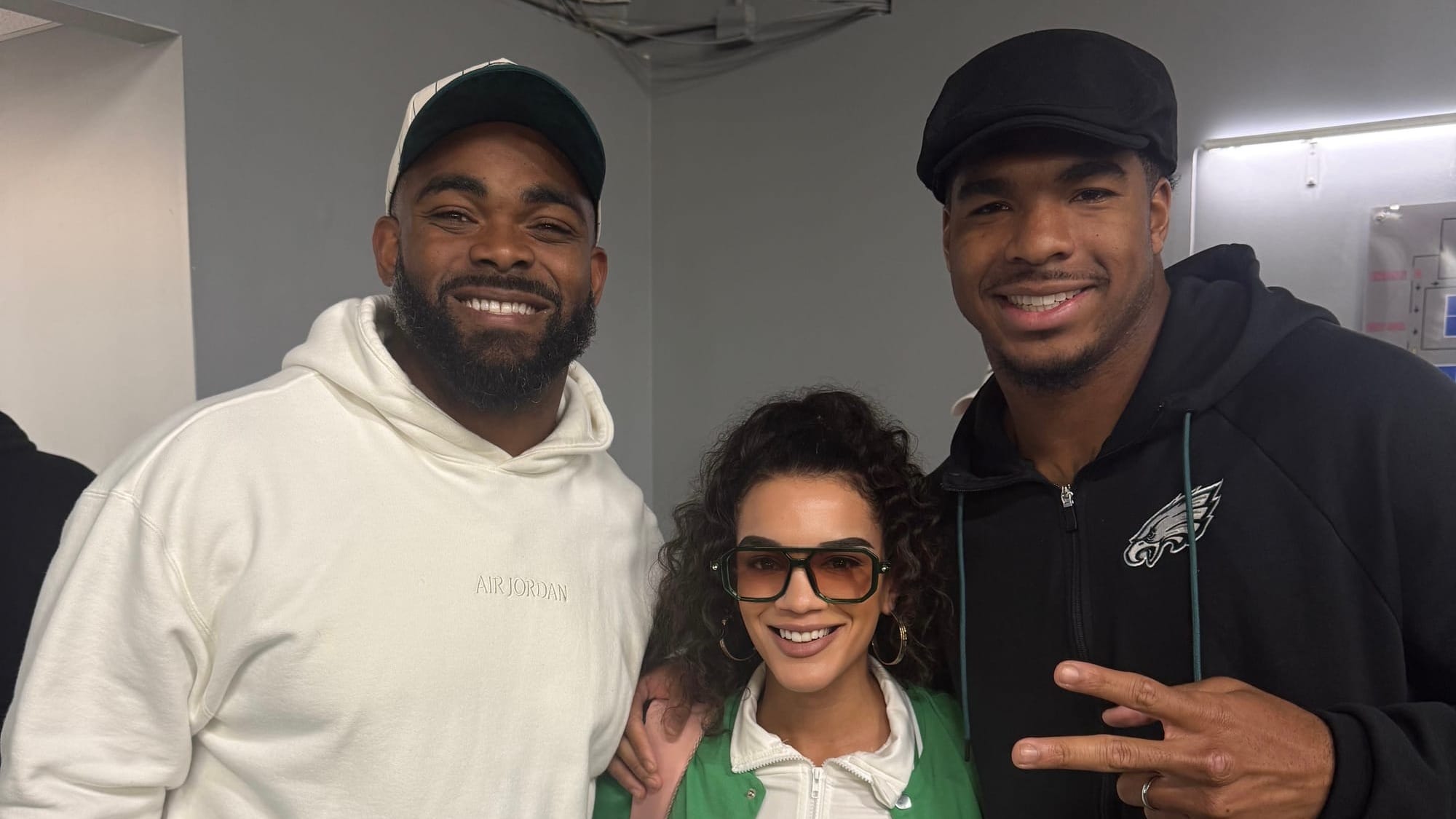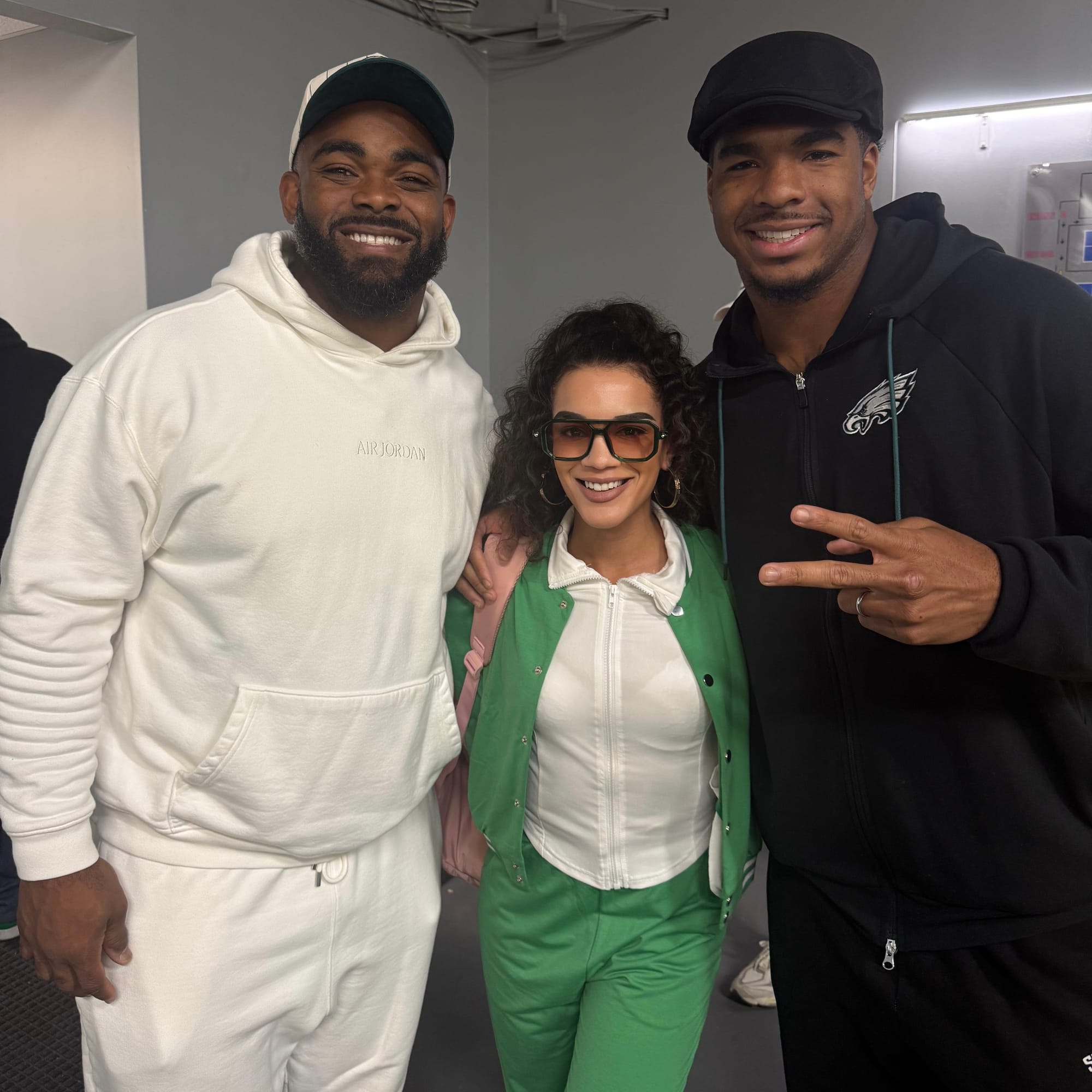“She’s Coming Home”: How Philly Is Preparing for the WNBA in 2030
For most cities, a new franchise means business deals, ticket sales, branding strategies. For Philly, it means a shift in identity.
For most cities, a new franchise means business deals, ticket sales, branding strategies. For Philly, it means a shift in identity. It means a city that has always produced some of the most talented women basketball players in the country, will finally have a professional team of its own. The team isn’t just arriving. She’s coming home.
There’s something sacred in the timing. In the aftermath of pandemic years that pulled girls out of school gyms, the sports climate is finally acknowledging women’s athletic excellence, not as a novelty, but as culture. “Some of these girls never even played ball, but they’re already asking about how to work in the front office. It’s like they finally see something in this city that has their name on it,” says Philadelphia Assistant Principal Gala Hughley.
Hughley has spent the last two years in Philadelphia schools, and she knows the impact of visibility. “It’s not just about kids wanting to play,” she says. “It’s about them seeing that women belong in the center of the sports world, not the sidelines.”
In a weight room across town, Coach Dilly Roman, Women’s Wrestling Coach & Youth Strength & Conditioning Coach is already putting together new conditioning drills. Today, the energy in the gym is different. Girls are walking in with their heads a little higher. Voices a little louder. “I’ve got girls asking what they need to do now to be ready in five years. They don’t even know who’s on the roster yet. That’s how hungry they are,” says Roman.
It’s not just about girls who play. Philadelphia mom and community influencer, Ashley Baldwin, also known as ‘Exact_ley’ on Instagram is watching the ripple effect through the eyes of her son. They sat together the night the news broke, scrolling Instagram and watching highlight reels of WNBA players. “He kept saying, ‘They look so strong.’ And I told him, ‘Yeah, they’re pros. Just like Embiid or Maxey.’ Now he wants to go to the first game. Not because it’s women. Because it’s Philly. That’s what matters,” says Baldwin. Representation isn’t just for the ones on the court. It’s for the ones in the stands. For the kids watching at home. For the parents who’ve been waiting to show their daughters and sons a new kind of role model.
The city is already moving like it is 2030, when the new team is slated to play its first game. One of the voices leading the charge is Malik Joe, a Philly-based sports content creator known for unfiltered commentary. Joe says the WNBA’s arrival in Philly isn’t just a win, it’s a wake-up call. “The city’s already full of hoopers. This just gives them a stage. But it also gives the fans a test. Are you gonna support this like you say you support Philly? ’Cause this team’s gonna need us from day one,” says Joe.
He’s already working on a community interview series and content ideas about the team. The goal: make this team part of the regular sports conversation in Philly, not just a “women’s moment.” “If we treat this like we treat the Birds, it’s gonna change everything,” says Joe.
Joe isn’t alone. Parents like Baldwin are beginning to frame the team’s arrival as an opportunity to set new norms in households across the city, especially for sons. “I grew up hearing ‘boys play sports, girls watch.’ That’s not what we’re doing in my house. My son’s gonna know women belong on that court, on the big screen, on the posters. And that we show up for them,” says Baldwin. She’s already planning to buy tickets for opening night. “It’s not just about the sport, it’s about presence. Letting kids see their city cheer for women, not just tolerate them.”
For every girl dreaming of being drafted, there are dozens more dreaming of being the ones who film the games, write the stories, manage the players, treat the injuries, run the brand, or call the shots from the front office.
That’s what excites Philadelphia educators like Assistant Principal Hughley. When she heard about the WNBA expansion, she didn’t just see basketball. She saw career pipelines. She saw mentorship. She envisions a formal program, one that places high school girls into shadowing roles with the WNBA franchise. Girls who want to do PR could help with game-day press. Students interested in kinesiology could observe the training staff. Aspiring artists could help with design. For Hughley, the most important part? That this starts before 2030. “Why wait for a tip-off? Let’s build the bridge now. Let this team be in schools next year,” says Hughley.
Meanwhile, Coach Roman is looking at things from the training floor. The presence of a professional team changes the standard. She’s already tweaking her summer programming to reflect that. “You get a girl in the gym with purpose, she becomes a different athlete. We’re training now like they might walk into a tryout five years from today.”
Her camps are open to girls across sports and backgrounds and increasingly, to those with no sports experience at all. “What they get from the gym; confidence, strength, identity, that’s bigger than basketball,” says Coach Roman. “This team’s presence makes that transformation feel like it leads somewhere.”
Both Assistant Principal Hughley and Coach Roman see the team as a catalyst; one that will build confidence, professional pathways, and a new Philly identity for girls who haven’t always seen themselves as part of the “sports world.”
It’s not just coaches and schools making this push. Baldwin says she’s already fielded questions from other moms who want to help their daughters get “involved” with the team. Many aren’t sure what that even means yet. That’s where community connection comes in. “Some of us didn’t grow up with women’s sports in our face like that. So we’re learning too. We need access to information, mentorship, even summer programs to help these girls and moms understand what’s possible.”
Joe agrees. “We’ve been telling kids to dream big,” he says. “But we didn’t always give them a map. Now we can show them what a dream actually looks like in this city. Not a flight out, a future here.”
Philadelphia has produced Olympians, NCAA stars, high school dynasties. But for decades, the dream of going pro as a woman, and staying in the city that raised you, was never an option. Now, that’s changing. For those closest to the ground, the excitement is layered with caution.
They have seen what happens when institutions roll into neighborhoods with flashy rollouts and corporate slogans, only to fade once the cameras are off. They know Philly doesn’t respond to surface-level engagement. You have to “mean it” here.
“We’ve been burned before. So while this feels historic, we also want to make sure it sticks. That it’s not just a one-season marketing campaign. That this team is embedded in the fabric of the city,” says Hughley.
Coach Roman agrees. She’s trained hundreds of girls over the years. Girls who lifted before sunrise, ran bleachers in the dark, gave everything they had to their sport. “There were girls in my gym five years ago who should’ve had scouts in the bleachers and banners in the rafters. But nobody came. They gave the city everything. The city didn’t give back.”
Roman believes there’s a chance to rewrite that legacy, but only if the new team sees its mission as more than just basketball. “It’s not just about who they sign. It’s about who they see. Who they mentor. Who they build with.”
Baldwin says the real test is how the team will show up before opening day. “If they wait until the team drops to start engaging with the city, they’ve already lost. The work starts now. Pull up to schools. Visit rec centers. Partner with women-owned businesses. Be real about it.”
As for Joe, who’s followed Philly’s sports scene from courtside to street level, this is personal. “This is a city where we show up hard for our teams, but we also know when we’re being used. This team has a shot at something different. Something real. But they gotta move with intention.” He points to the Sixers’ rise and the way the “Trust the Process” era built loyalty through transparency and identity. “We didn’t win a lot of games back then,” he says, “but we believed in something.”
There are real stakes here. If this team is embraced and embedded into Philly’s fabric, it could shift how an entire generation of girls sees themselves, not just in sports, but in life. But if it’s rushed, performative, or disconnected from the people who’ve been laying the foundation for decades, it risks becoming just another missed opportunity in a city full of them. “We’re not asking for perfection. We’re asking for presence. Show up. Stay. Build with us,” says Hughley.
Coach Roman is already stacking weight plates before sunrise, pushing girls to run harder, lift smarter, believe deeper. “They train differently now. It’s not just for college. It’s for legacy. For their city. I’ve got girls saying, ‘Coach, I want to be ready if they’re watching.’ And I tell them, they are watching.”
Hughley is taking the summer to help girls draft resumes for internships that don’t technically exist yet. But they will. When they do, she wants her students at the front of the line. “I tell them, start now. Don’t wait for someone to give you permission to belong. Philly’s WNBA team is coming, and our girls are going to be ready to see it, not chase it.”
In living rooms across the city parents, like Baldwin, are talking about season tickets not as entertainment, but as education. “This isn’t just about basketball,” says Baldwin. “It’s about letting our kids see women being excellent, on their own terms, on their own turf.”
This is Philadelphia; a city of grit, loyalty, and pride that spills from the stands to the streets. We don’t just support teams. We become them. We wear them. We raise our kids on them. We tattoo their logos on our arms and scream their names on Broad Street.
So what happens when Philly finally has a pro women’s basketball team? It becomes about more than just the sport. It’s about mothers who’ve never seen their stories reflected in sports. Coaches who’ve long been overlooked. Artists who’ve never been hired to paint murals of female athletes. Young women who grew up playing in borrowed jerseys, now dreaming of wearing their city’s name on their chest. We have a chance right now to decide. We can treat this like another press release, or we can treat it like what it truly is: a call to action.




